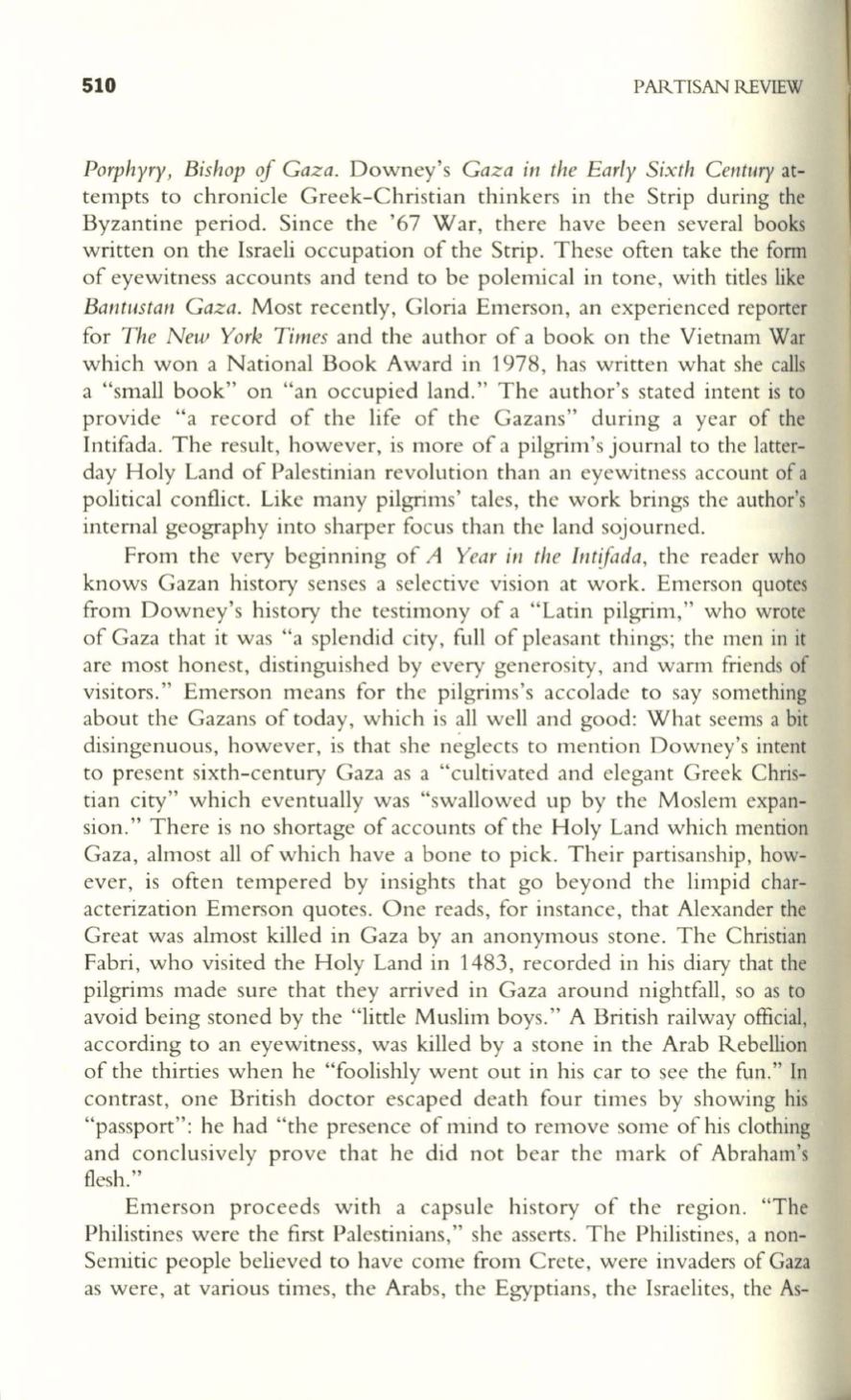
510
PARTISAN REVIEW
Porphyry, Bishop oj Gaza.
Downey's
Gaz a in the Early Sixth Century
at–
tempts to chronicle Greek-Christian thinkers in the Strip during the
Byzantine period. Since the '67 War, there have been several books
written on the Israeli occupation of the Strip . These often take the form
of eyewitness accounts and tend to be polemical in tone, with titles like
Bantustal1 Gaza.
Most recently, Gloria Emerson, an experienced reporter
for
The New York Times
and the author of a book on the Vietnam War
which won a National Book Award in 1978, has written what she calls
a "small book" on "an occupied land." The author's stated intent is to
provide "a record of the life of the Gazans" during a year of the
Intifada. The result, however, is more of a pilgrim's journal to the latter–
day Holy Land of Palestinian revolution than an eyewitness account of a
political conflict. Like many pilgrims' tales, the work brings the author's
internal geography into sharper focus than the land sojourned.
From the very beginning of
A Yea r
i'1
the Intifada,
the reader who
knows Gazan history senses a selective vision at work. Emerson quotes
from Downey's history the testimony of a "Latin pilgrim, " who wrote
of Gaza that it was "a splendid city, full of pleasant things; the men in it
are most honest, distinguished by every generosity, and warm friends of
visitors." Emerson means for the pilgrims's accolade to say something
about the Gazans of today, which is all well and good: What seems a bit
disingenuous, however, is that she neglects to mention Downey's intent
to present sixth- century Gaza as a "cultivated and elegant Greek Chris–
tian city" which eventually was "swallowed up by the Moslem expan–
sion ." There is no shortage of accounts of the Holy Land which mention
Gaza, almost all of which have a bone to pick. Their partisanship, how–
ever, is often tempered by insights that go beyond the limpid char–
acterization Emerson quotes. One reads, for instance, that Alexander the
Great was almost killed in Gaza by an anonymous stone. The Christian
Fabri, who visited the Holy Land in 1483, recorded in his diary that the
pilgrims made sure that they arrived in Gaza around nightfall, so as to
avoid being stoned by the "little Muslim boys." A British railway official,
according to an eyewitness, was killed by a stone in the Arab Rebellion
of the thirties when he "foolishly went out in his car to see the fun." In
contrast, one British doctor escaped death four times by showing his
"passport": he had "the presence of mind to remove some of his clothing
and conclusively prove that he did not bear the mark of Abraham's
flesh ."
Emerson proceeds with a capsule history of the region. "The
Philistines were the first Palestinians," she asserts. The Philistines, a non–
Semitic people believed to have come from Crete, were invaders of Gaza
as were, at various times, the Arabs, the Egyptians, the Israelites, the As-


